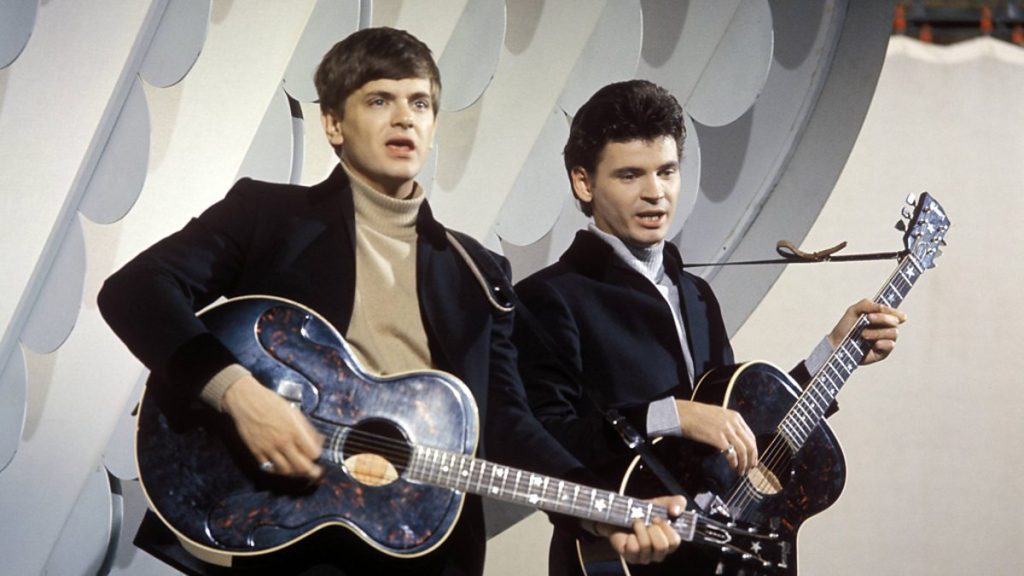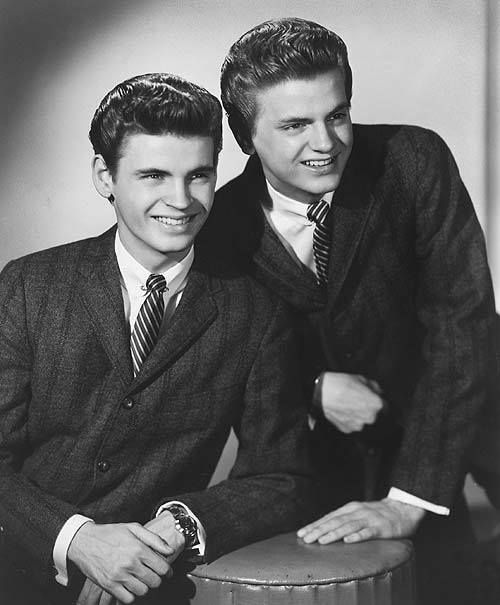
A Timeless Yearning for Lost Love
When The Everly Brothers released “Walk Right Back” in 1961, the world was a different place—a time when music was transitioning, much like the society around it. The song quickly climbed the charts, reaching number 7 on the Billboard Hot 100, a testament to its universal appeal and timeless resonance. But what is it about this song that continues to captivate audiences, particularly those who remember hearing it for the first time on their transistor radios or spinning it on their turntables?
At its core, “Walk Right Back” is a poignant ode to longing and unfulfilled desire. It captures the essence of yearning in a way that only music from that era seems to do—effortlessly and sincerely. The song’s narrative is simple yet deeply emotional: a plea for a lover to return. This is not just a call to rekindle a romance but rather an earnest appeal to restore something lost, something that perhaps defined one’s very existence.
The Everly Brothers, known for their harmonious blend of voices, were at the peak of their career during this release. With hits like “All I Have to Do Is Dream” and “Bye Bye Love,” they had already cemented their place in music history. Yet, “Walk Right Back” stands out because of its backstory and the emotional weight it carries.
The song was penned by Sonny Curtis, who was part of Buddy Holly’s band, The Crickets. Curtis wrote the song while stationed with the Army, which adds another layer of longing and separation to the piece. The sense of distance—both physical and emotional—is palpable throughout the lyrics. Imagine being far away from someone you love, unable to communicate with them as often as you’d like. This was a reality for many during that time, particularly with young men drafted into military service.
Curtis initially wrote only one verse before sending it off to his friend in Los Angeles, hoping for feedback or perhaps some inspiration to finish it. It was this unfinished quality that may have lent the song its authenticity—a raw snapshot of emotion caught in mid-breath.
Musically, “Walk Right Back” is quintessentially Everly. The seamless harmonies of Don and Phil Everly bring Curtis’s lyrics to life with an almost haunting beauty. Their voices blend in such a way that it’s hard to distinguish where one ends and the other begins—a perfect metaphor for the unity and separation that love can simultaneously bring.
For those who heard this song upon its initial release or grew up listening to it through their parents’ records, “Walk Right Back” often serves as a nostalgic touchstone—a reminder of simpler times when emotions were conveyed through handwritten letters rather than text messages. There’s an innocence wrapped in those melodies and lyrics, an innocence that seems all too rare today.
The cultural impact of “Walk Right Back” extends beyond its chart success. It has been covered by various artists over the years, each rendition adding a new dimension while preserving its core sentiment. Yet none have quite captured the original’s blend of melancholy and hope—the kind that resonates deeply with anyone who has ever experienced love’s bittersweet sting.
As we reminisce about The Everly Brothers and their indelible mark on music history, it’s songs like “Walk Right Back” that remind us why they continue to be celebrated icons. Their ability to convey profound emotions with simplicity and grace ensures that their music remains timeless.
In conclusion, whether you’re revisiting this classic after many years or discovering it anew, “Walk Right Back” stands as an enduring tribute to love’s complexities—its joys and sorrows, its promises and regrets. It’s a musical journey back in time, where each note invites you to linger just a little longer in its comforting embrace.
